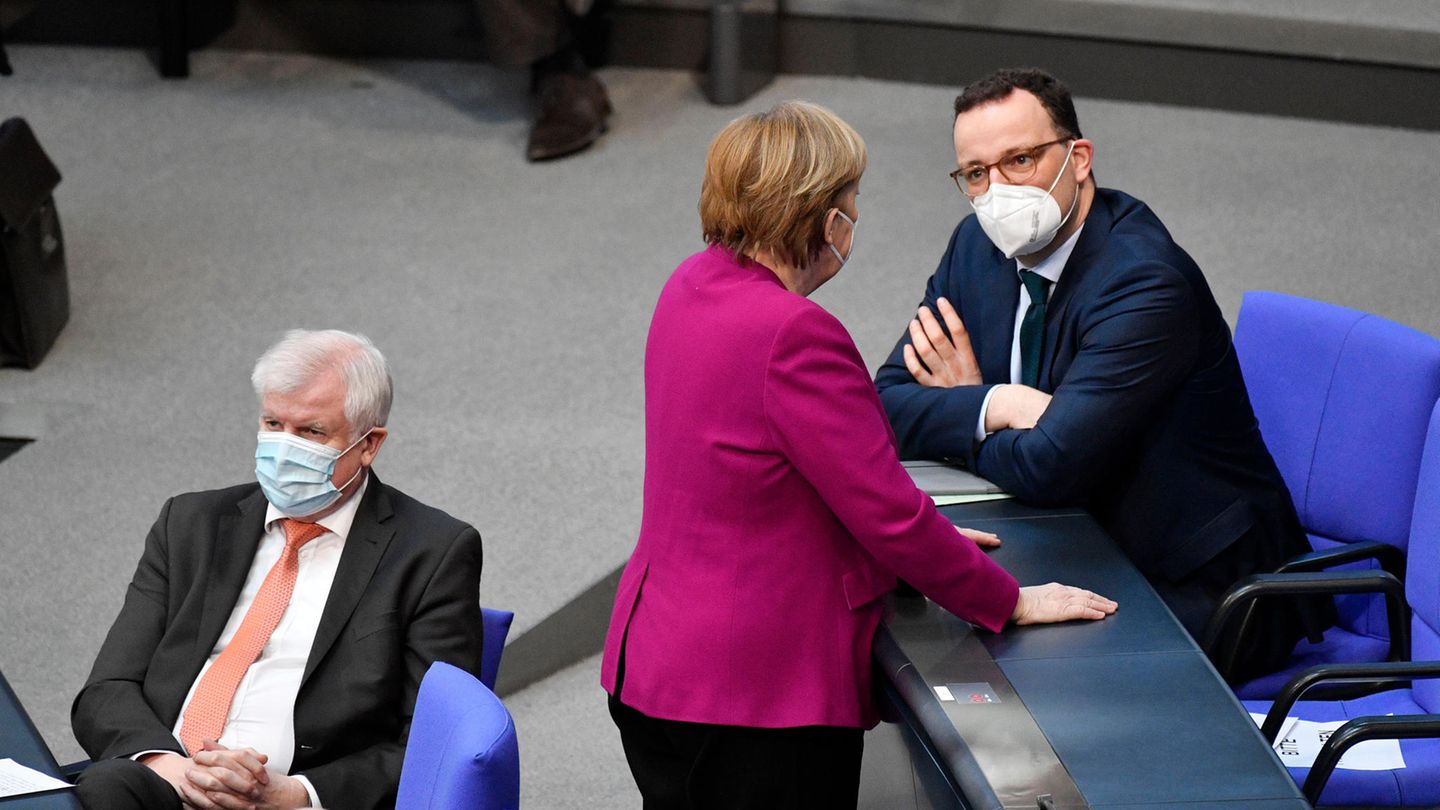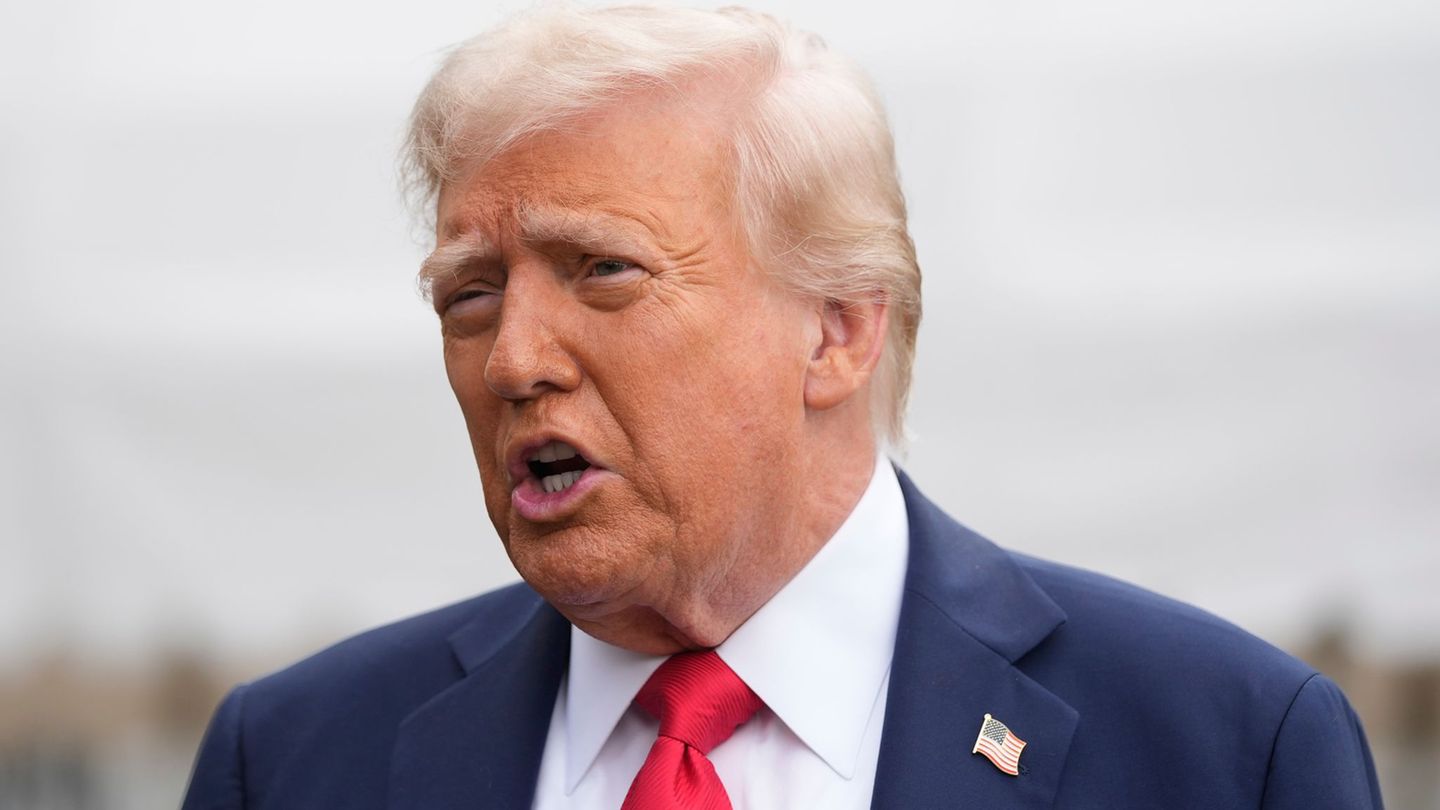By establishing an “epidemic situation of national scope”, the federal government is authorized to directly enact corona measures. The special situation is now to be extended – the opposition criticizes this and demands a regulation adapted to the new situation.
This Wednesday, the Bundestag is discussing the extension of the “epidemic situation of national scope” because of the corona pandemic. The established situation gives the federal government the right to issue ordinances directly without the consent of the Bundesrat, for example on tests, vaccinations, occupational safety or entry. In addition, according to the Infection Protection Act, specific measures such as mask compulsory or contact restrictions, which the federal states can determine, relate to the determination of the “epidemic situation”. Before the vote, the opposition criticized the extension requested by the coalition factions.
“When we asked, the federal government was not even able to convincingly demonstrate that the health system is likely to be overburdened,” said FDP party vice president Wolfgang Kubicki of the editorial network Germany (RND). But this is the mandatory legal requirement for the extension of this emergency. “The fact that widespread restrictions on fundamental rights and the authorization to issue ordinances are justified with an exceptional situation that no longer exists is almost certainly not constitutionally tenable.”
Turning away from incidence as a yardstick in September at the earliest
Green parliamentary group leader Katrin Göring-Eckardt told the RND that an unchanged extension of the “epidemic situation” was wrong. “The pandemic is not over yet, we must continue to be careful.” Nevertheless, the vaccines make the situation different than it was in winter. “We now need a regulation that fits the new situation and takes into account the number of people vaccinated, no business as usual”. The prerequisites would have to be created “for a legally secure, limited continuation of certain measures tailored to the current Covid 19 situation such as masks, AHA rules and tests”.
Chancellor Angela Merkel (CDU) and the Prime Ministers of the federal states asked the Bundestag to “consider” extending the epidemic situation beyond September 11th. The Bundestag last determined on June 11th that the special situation persists due to the corona pandemic. At that time, the factions of AfD, FDP and Die Linke voted against it. The vast majority of the government factions agreed, and a large part of the Greens voted yes despite criticism.
The planned move away from incidence as the sole yardstick for restrictions is not yet available for consultation this Wednesday. This new regulation in the Infection Protection Act could be decided in a further meeting before the federal election in September. The previous incidence value of 50, which is still anchored in the Infection Protection Act as a benchmark for stricter measures, is to be deleted according to the plans of the federal government because the vaccinations have improved the situation. In the future, the number of hospital admissions due to Covid-19 should be decisive. However, it is still open which number or figures will actually lead to which measures.
Hamburg as a pioneer in relaxation for vaccinated people
The SPD health expert Karl Lauterbach considers further restrictions for unvaccinated people to be necessary in the event of severe infection. “If the number of cases continues to rise so rapidly, especially in North Rhine-Westphalia, then it will be necessary to tighten the rules for unvaccinated people,” he told the newspapers of the Funke media group. “This also includes a 2G rule that is as consistent as possible, at least in those areas where there is a very high risk.” This means that certain events are only accessible to vaccinated or convalescent people – but not to other people, even if they have a negative corona test.
The Hamburg Senate decided on a corresponding “option model” on Tuesday: restaurants, clubs, pubs and cultural institutions in Hamburg can almost completely use their capacities again from Saturday, provided that unvaccinated people are not allowed in. “3G” has been in effect in more and more federal states since Monday: access to many indoor public spaces is only granted to those who have been vaccinated, recovered or who have been tested.
David William is a talented author who has made a name for himself in the world of writing. He is a professional author who writes on a wide range of topics, from general interest to opinion news. David is currently working as a writer at 24 hours worlds where he brings his unique perspective and in-depth research to his articles, making them both informative and engaging.




